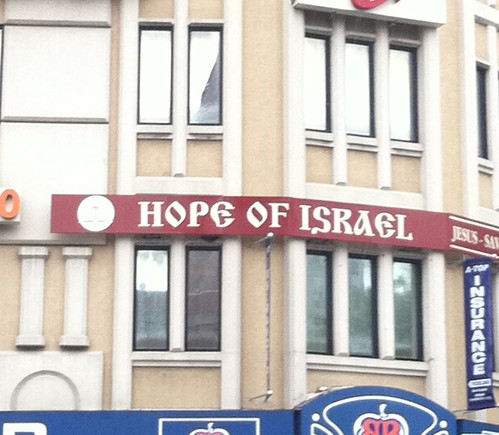
The strong pro-Israel presence in “Little Russia” evokes tensions for non-Jewish Russian immigrants in the area
When Yury Rozinov arrived from Russia to a bus stop in Connecticut twenty-three years ago, the first person to greet him was an African American man he met on the street. Growing up in Russia, Rozinov cannot recall ever meeting an African American until that point in his life. He admits to being a bit shocked, but when the same man accused him of being a racist one year later, his first response was “why would I be a racist? I’ve been hated my whole life for my race.”
Although Mr. Rozinov may himself be Caucasian, he is Jewish, which is considered its own ethnicity in Russia that has seen years of oppression.
Persecution of Russians Jews dates back to as early as the late 1700s under the rule of Tsar Catherine “The Great.” Catherine forced Jews to settle on the outskirts of imperial Russia in what were referred to as the “Pale of Settlements;” the Pale included modern-day Poland, Latvia, Lithuania, Ukraine, and Belorussia.
Oppression continued into the time of the Soviet Union, when religion became illegal. Many Jews refused to convert their beliefs, and thus began a major wave of immigration to the United States, Europe, and Israel to escape punishment.
“I want you to understand correctly that we were refugees,” say Rozinov. “The reason of immigration was persecution from Russians to Jews.”
Brighton Beach became a predominately Russian-Jewish community, where the immigrants assimilated into American culture with general ease and learned English well. Recently, however, the United States has seen another influx of Russian immigration, this time from ethnic Russians trying to escape the corrupt government that still exists today, and their assimilation did not happen as easily.
The tides of dominance seem to have shifted in the new “Little Russia,” where “the slaves have become the ones with the power,” according to Rozinov.
One of the biggest issues between the two ethnic groups is differences in class status, according to Ari Kagan, a Jewish-rights activist and board member of CURE NYC (Community Understanding for Racial and Ethnic Equality), an organization devoted to diminishing conflicts amongst and between immigrant communities. The Russian Jews who came here were often better educated than the ethnic Russians who are coming more recently. That emphasis on education has continued here in New York where Russian Jews have continued to earn higher degrees translating into better jobs. Meanwhile the ethnic Russians were immigrating later in life, many in their 50s, often making it harder for them to learn English. Kagan believes that the language barriers coupled with the immigrants’ strong desires to hold on to their native cultures have made it more difficult for the ethnic Russians to assimilate into American culture.
Today, a large number of ethnic Russians work in service-based jobs such as health aides and home care assistants, while the Jewish Russians tend to own their own shops or work in sciences such as engineering and medicine.
“It creates a basis for jealousy,” says Kagan, a Belorussia native, in reference to the differences in job status.
Kagan also says that the strong pro-Israel presence in New York City’s Russian media adds tensions amongst the two ethnic groups.
“Local non-Jewish immigrants came from a country where Israel and Judaism weren’t relevant, now everyday they hear about them. It’s not comfortable,” he adds.
Although the tensions still exist between the two ethnicities, the community remains confident that America’s tolerant attitude will in fact decrease animosities between future generations of Russians in New York City.
“CURE puts together a lot of educational and charity programs for schools that promote tolerance and acceptance,” says Kagan. “For [my generation], some tensions are inevitable because of the country we come from. But as more time passes, people become more Americanized. [Immigrant children] are going to be Americans, and of course they’ll have other issues, but America is its own culture and it unites us all at the end of the day.”
